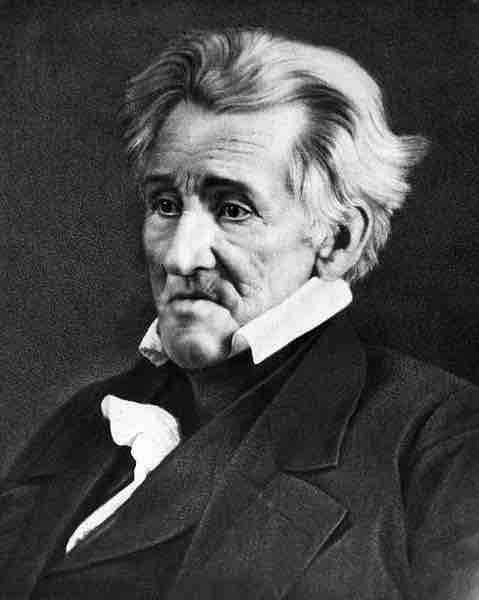Democratic Party
The Democratic Party is one of two major contemporary political parties in the United States along with the Republican Party. Since the 1930s, the party has promoted a social liberal, social democratic and progressive platform, and its Congressional caucus is composed of progressives, liberals, centrists, and left-libertarians. The party has the lengthiest record of continuous operation in the United States and is one of the oldest political parties in the world. President Barack Obama is the15th Democrat to hold the presidency.
The Democratic Party evolved from Anti-Federalist factions that opposed the fiscal policies of Alexander Hamilton in the early 1790s. Thomas Jefferson and James Madison organized these factions into the Democratic-Republican Party. The party favored states' rights and strict adherence to the Constitution; it opposed a national bank and wealthy, moneyed interests. The Democratic-Republican Party gained power in the election of 1800.
Democratic-Republicans split over the choice of a successor to President James Monroe, and the party faction that supported many of the old Jeffersonian principles, led by Andrew Jackson and Martin Van Buren, became the Democratic Party . In the 1850s, under the stress of the Fugitive Slave Law and the Kansas–Nebraska Act, anti-slavery Democrats left the party. Joining with former members of existing or dwindling parties, the Republican Party emerged. In the lead up to the 1860 election, the Democratic Party split further, this time, over nominees which led to a Republican victory and Abraham Lincoln was elected the 16th President of the United States.

Andrew Jackson
Andrew Jackson is typically considered the first Democratic President.
As the American Civil War broke out, Northern Democrats were divided into War Democrats and Peace Democrats. Most War Democrats rallied to Republican President Abraham Lincoln and the Republicans' National Union Party in the election of 1864, which featured Andrew Johnson on the Republican ticket even though he was a Democrat from the South.
After the end of Reconstruction in the 1870s, the South, voting Democratic, became known as the "Solid South. " Though Republicans won all but two presidential elections, the Democrats remained competitive.
The Great Depression in 1929 that occurred under Republican President Hoover set the stage for a more liberal government; the Democrats controlled the House of Representatives nearly uninterrupted from 1931 until 1995 and won most presidential elections until 1968. Franklin D. Roosevelt, elected to the presidency in 1932, came forth with government programs called the New Deal.
New Deal liberalism meant the promotion of social welfare, labor unions, civil rights, and regulation of business. The opponents, who stressed long-term growth, support for business, and low taxes, started calling themselves "conservatives. "
African Americans, who traditionally supported the Republican Party, began supporting Democrats following the ascent of the Franklin Roosevelt administration, the New Deal, and the Civil Rights movement. The Democratic Party's main base of support shifted to the Northeast, marking a dramatic reversal of history. Bill Clinton was elected to the presidency in 1992, as a New Democrat. Re-elected in 1996, Clinton was the first two term Democratic President since Roosevelt.
Some of the party's key issues in the early 21st century in their last national platform have included the methods of how to combat terrorism, homeland security, expanding access to health care, labor rights, environmentalism, and the preservation of liberal government programs.
Since 1912, the Democratic Party has moved to the left of the Republicans on economic and social issues. Roosevelt's economic philosophy strongly influenced American liberalism and has shaped much of the party's economic agenda since 1932.
Since the 1890s, the Democratic Party has favored liberal positions ("liberal" in this case meaning social liberalism). Historically, the party has favored farmers, laborers, labor unions, and religious and ethnic minorities; it has opposed unregulated business and finance, and favored progressive income taxes. In foreign policy, internationalism (including interventionism) was a dominant theme from 1913 to the mid-1960s. The major influences for liberalism were labor unions (which peaked in the 1936–1952 era), and the African American wing, which has steadily grown since the 1960s.
The mixed economy policy adopted by the modern Democratic Party has been referred to as the "Third Way". Democrats believe government should play a role in alleviating poverty and social injustice and use a system of progressive taxation.
Initially calling itself the "Republican Party," Jeffersonians were labeled "Democratic" by the Federalists, hoping to stigmatize them as purveyors of mob rule.
The most common mascot symbol for the party is the donkey, although the party never officially adopted this symbol. Andrew Jackson's opponents had labeled him a jackass during the intense mudslinging in 1828
The Blue Dog Coalition, a caucus of fiscal and social conservatives and moderates, forms part of the Democratic Party's current faction of conservative Democrats.
Since election night in 2000, the color blue has become the identified color of the Democratic Party, all major broadcast television networks used blue for Democrat Al Gore.